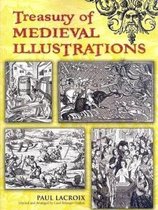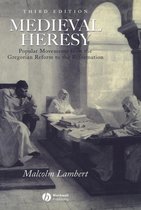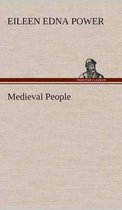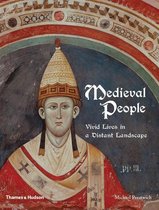Images of the Medieval Peasant
Afbeeldingen
Sla de afbeeldingen overArtikel vergelijken
- Engels
- Paperback
- 9780804733731
- 01 januari 1999
- 484 pagina's
Samenvatting
The medieval clergy, aristocracy, and commercial classes tended to regard peasants as objects of contempt and derision. In religious writings, satires, sermons, chronicles, and artistic representations peasants often appeared as dirty, foolish, dishonest, even as subhuman or bestial. Their lowliness was commonly regarded as a natural corollary of the drudgery of their agricultural toil.
Yet, at the same time, the peasantry was not viewed as “other” in the manner of other condemned groups, such as Jews, lepers, Muslims, or the imagined “monstrous races” of the East. Several crucial characteristics of the peasantry rendered it less clearly alien from the elite perspective: peasants were not a minority, their work in the fields nourished all other social orders, and, most important, they were Christians. In other respects, peasants could be regarded as meritorious by virtue of their simple life, productive work, and unjust suffering at the hands of their exploitive social superiors. Their unrewarded sacrifice and piety were also sometimes thought to place them closest to God and more likely to win salvation.
This book examines these conflicting images of peasants from the post-Carolingian period to the German Peasants’ War. It relates the representation of peasants to debates about how society should be organized (specifically, to how human equality at Creation led to subordination), how slavery and serfdom could be assailed or defended, and how peasants themselves structured and justified their demands.
Though it was argued that peasants were legitimately subjugated by reason of nature or some primordial curse (such as that of Noah against his son Ham), there was also considerable unease about how the exploitation of those who were not completely alien—who were, after all, Christians—could be explained. Laments over peasant suffering as expressed in the literature might have a stylized quality, but this book shows how they were appropriated and shaped by peasants themselves, especially in the large-scale rebellions that characterized the late Middle Ages.
Productspecificaties
Inhoud
- Taal
- en
- Bindwijze
- Paperback
- Oorspronkelijke releasedatum
- 01 januari 1999
- Aantal pagina's
- 484
- Illustraties
- Nee
Betrokkenen
- Hoofdauteur
- Paul Freedman
- Tweede Auteur
- Freedman Paul
- Hoofduitgeverij
- Stanford University Press
Overige kenmerken
- Extra groot lettertype
- Nee
- Product breedte
- 152 mm
- Product lengte
- 229 mm
- Studieboek
- Nee
- Verpakking breedte
- 152 mm
- Verpakking hoogte
- 229 mm
- Verpakking lengte
- 229 mm
- Verpakkingsgewicht
- 689 g
EAN
- EAN
- 9780804733731
Kies gewenste uitvoering
Prijsinformatie en bestellen
De prijs van dit product is 41 euro en 99 cent.- Prijs inclusief verzendkosten, verstuurd door bol
- Ophalen bij een bol afhaalpunt mogelijk
- 30 dagen bedenktijd en gratis retourneren
- Dag en nacht klantenservice
Rapporteer dit artikel
Je wilt melding doen van illegale inhoud over dit artikel:
- Ik wil melding doen als klant
- Ik wil melding doen als autoriteit of trusted flagger
- Ik wil melding doen als partner
- Ik wil melding doen als merkhouder
Geen klant, autoriteit, trusted flagger, merkhouder of partner? Gebruik dan onderstaande link om melding te doen.








